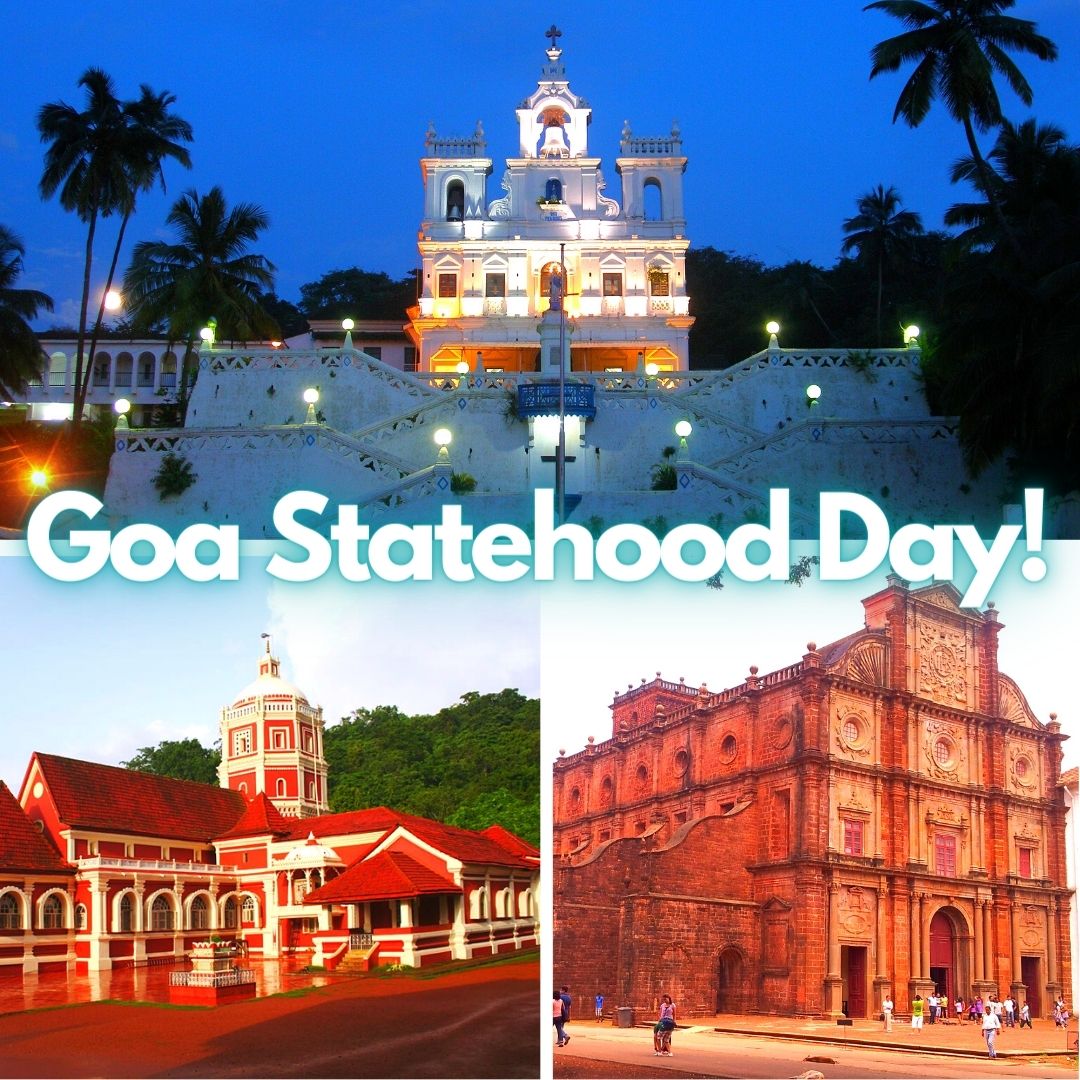Goa Statehood Day: From Portuguese Capital In Asia To 25th State Of India
Writer: Mrinalini Kaushik
She is a student of journalism, keen on learning new ways to unlearn, deconstructing news and life. Interested in exploring new media as medium is the message. Avid follower of sports and politics
Goa, 30 May 2022 7:33 AM GMT
Editor : Snehadri Sarkar |
While he is a massive sports fanatic, his interest also lies in mainstream news and nitpicking trending and less talked about everyday issues.
Creatives : Snehadri Sarkar
While he is a massive sports fanatic, his interest also lies in mainstream news and nitpicking trending and less talked about everyday issues.
Goa achieved its statehood as a Union Territory on May 30, 1987. Here's a look at Goa's culturally rich history and a long, arduous battle to becoming India's state.
Goa achieved its statehood from a Union Territory alongside Daman and Diu on May 30, 1987, to become the 25th state of India. Marking the 35th anniversary of statehood on Monday (May 30), President Ram Nath Kovind will celebrate it at the Raj Bhawan in Goa and set the foundation for a new Raj Bhawan in Goa's capital city, Panaji.
Furthermore, the state government will be extolling all the previous Chief Ministers of Goa and personalities who helped grow agricultural, educational and sports sectors in the state, as reported by CNBC TV18.
Portuguese Capital In Asia
The first fleet of Portuguese travellers arrived in the South of Goa in 1505, and they merely established a naval point in the Indian subcontinent at that time. The prosperity of Goa began when the second Viceroy, Admiral Afonso de Albuquerque, was appointed. He made Goa not just a fortified port colony but the capital of the Portuguese kingdom in Asia among its settlements in other parts of India, Indonesia, East Timor, the Persian Gulf and some parts of China and Japan. The Portuguese ruled over Goan territory for over four centuries.
Goa became the epicentre of Portuguese India's trade, naval activities, and commercial culture. Interestingly, Albuquerque and its successors did not interfere in Goans' rituals and cultural practices in as many as 30 villages, except for banning sati. The then Governor of Goa (1563) decided to give Goa a seat in the Portuguese Parliament to represent all Portuguese colonies in the East. However, that was not approved. Instead, Goa was allotted the same civilian privileges as the Portuguese capital, Lisbon.
India's Action Against Portuguese Rule
Goa was unaffected by the independence of India in 1947. Jawahar Lal Nehru claimed that Goa, alongside other Portuguese colonies in India, should cede its control to the Indian government; nevertheless, the Portuguese refused to do so. However, some armed rebel Indians started taking over small areas of Dadar Nagar Haveli, another Portuguese colony, which led the Portuguese to take the matter up to the International Court of Justice, The Hague.
The court submitted its ruling in 1960, stating that even though the Portuguese had the right over the territory in question, the Indian government had equal right to deny Portuguese control and access to Indian territory. Therefore, the Indian government launched Operation Vijay in December 1961, which consisted of continuous armed strikes, both aerial and naval, for over 36 hours until the Portuguese surrendered. Goa remained a Union Territory until May 30, 1987.
Also Read: Who Was Sidhu Moose Wala? Story Of Singer-Turned-Politician From Punjab's Moosa Village
 All section
All section














